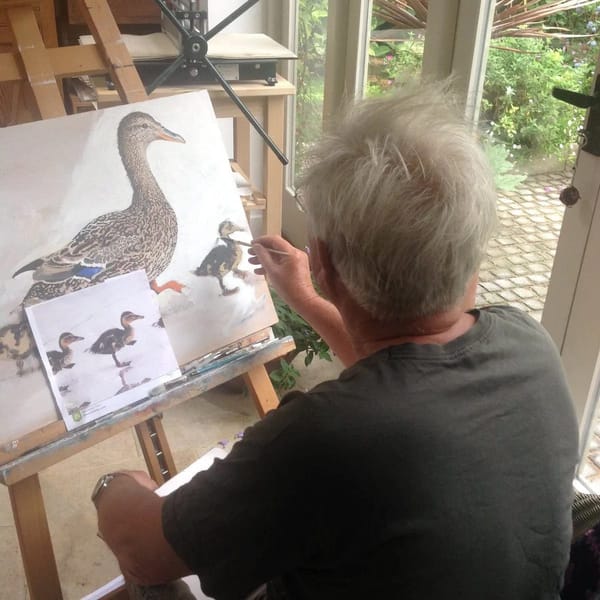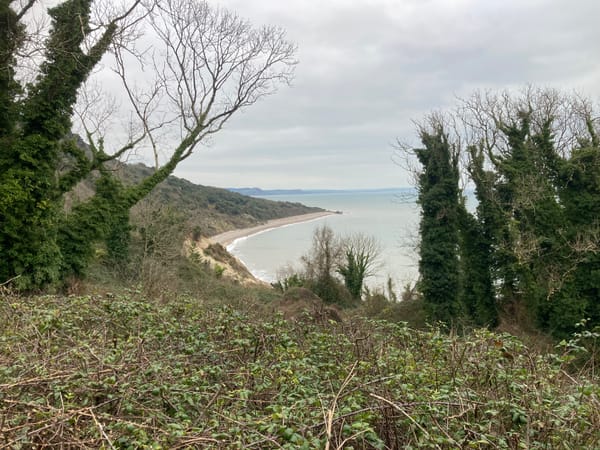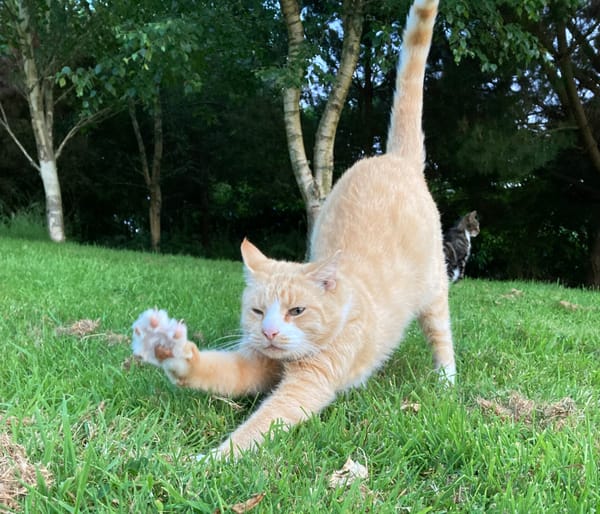Failed Clickbait Title About The Blood Clot In My Arse And The Complex Pernicious Evil Of Algorithms, Particular As Pertaining To The Potential For Harmful Workaholism In The Under-51 Age Group
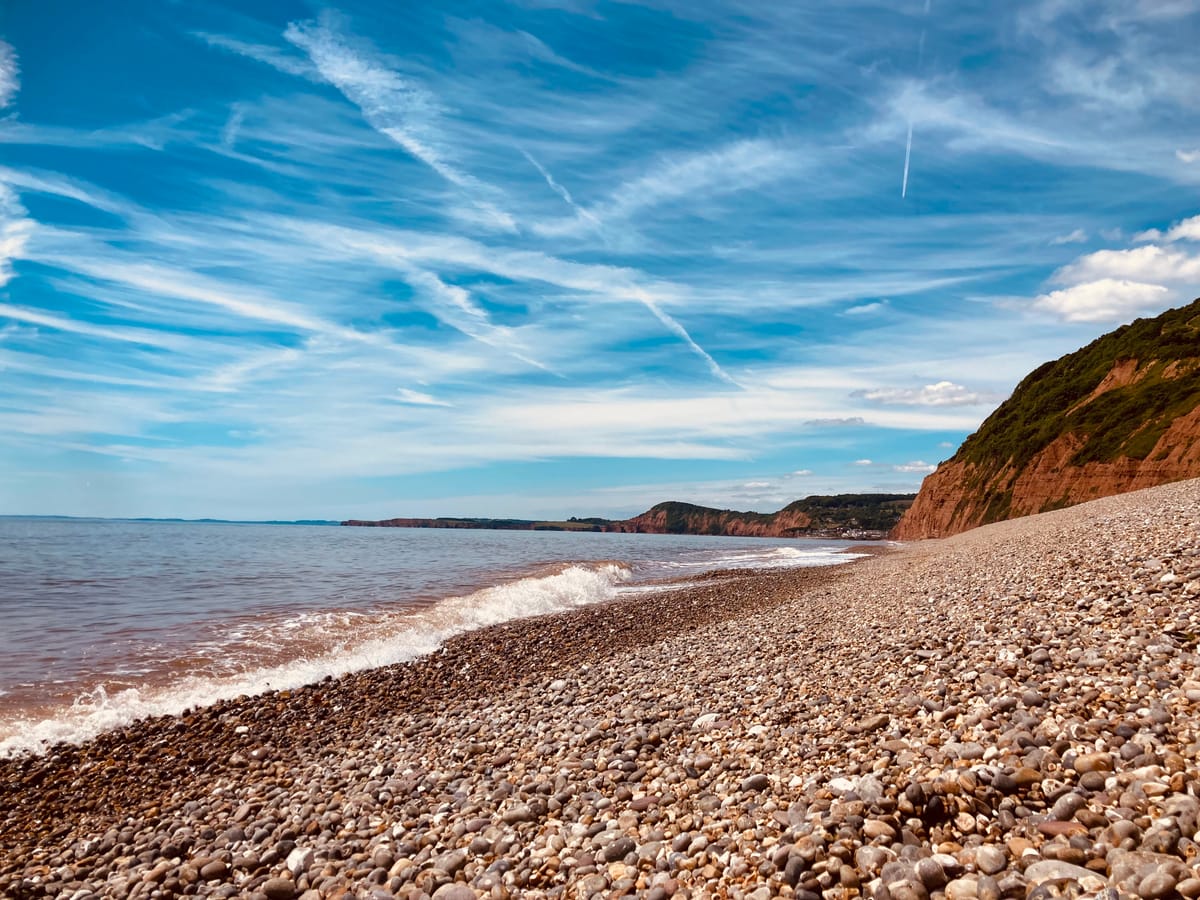
Today's post is free but on the off chance you'd like to support my writing you can do so here, at a price of your choice from £10 per year, or via a one-off donation here.
Picture it: that classic, timeless scene, the newlyweds in the hospital car park. It’s about eight minutes to midnight and we’re finally wandering away from the Accident & Emergency department when Ellie asks, “Do you think you’re going to write about this?” It’s a good question and I’m about to give it some proper thought but it’s at this point that I notice that earlier, in my pain-fogged state, I parked the car in a place it’s not supposed to be. I’m probably going to get a fine but to be honest it’s not bothering me, as nowadays paying the official fee for eight hours of parking in a hospital car park you’re supposed to be in costs not far off as much as paying a fine for parking in one you’re not supposed to be in, and, after more than a week of extreme pain, and two visits here, I’m feeling so relieved to have finally talked to a knowledgeable and sympathetic doctor, a parking fine is easily relegated to the status of extraneous detail. I mean, I’m not saying that the A&E doctor I’d seen four days before, who’d decided that the best thing to do to the huge blood clot at the far end of my intestine was wrong to just go ahead and squeeze it really hard without asking my permission - he was obviously an experienced man with a lot of trust in his own methods - but today feels more productive. Today has furnished me with a new epiphanical understanding of what people mean when they make remarks like “brilliant doctor” or “brilliant surgeon”. Actually, I have no concrete firsthand evidence about whether James, the young surgeon I’ve just talked to is a brilliant surgeon because he’s not done any surgery on me yet but I do know that he’s a brilliant listener and communicator - both qualities which are invaluable in a medical professional when you have been in a frightening amount of pain - and that these communication skills, as well as giving me a much better idea what is going on with my body, extend to an extraordinarily tactful, yet patently shocked, response to receiving the information about the more… basic approach his colleague had taken to my affliction the previous Friday. I know where I am with James, which is good because one of the defining features of the previous week has been not knowing where I am with anything. There is also the fact that I am not leaving the hospital with blood-saturated underwear but really that’s just a minor bonus next to everything else.
But to go back and answer Ellie’s question, which it would seem I am now in the process of answering anyway: in some ways, no, I would rather not write about it. I feel like my readers probably already heard enough about my intimate body parts in the section of Ring The Hill where I wrote about being invaded by eight ticks in one day, including one I found drinking blood from my left bollock. Besides, I had been hoping to write about Jim Morrison, or the particular unforgettable atmosphere that Norfolk had in the winter of 2010 during the many long walks I took there, or Sylvia Townsend Warner, or, most likely of all, the sea - specifically the unusually intense relationship I have had with it this summer. I had been wanting to write about the way time has an entirely different quality when you’re swimming in the sea, how wildly alien the measurement of half an hour in the waves is compared to the measurement of half an hour in a swimming pool, and whether that is down to the mystical counterforces of waves themselves: the same properties which make it impossible to perceive one wave as an individual entity, no matter how hard you try, as Italo Calvino observes in his story about waves in his short swansong novel Mr Palomar. I had wanted to write about the way the sea has improved my health this year (HA!) and the astonishingly different moods I have found it in, including the mood where it posed very convincingly as a small Italian lake and the mood just a few hours after that where, as soon as I entered it, it picked me up over its head as if the sea and I were part of an old tabloid newspaper photoshoot and the sea was a 1980s Strong Man and I was a Miss World finalist, but then threw me, cackling, to the shingled floor, which seemed a very unfair thing to do when I had made such a special effort to tart myself up all nice, wear the perfume I keep "for best" and compete earnestly for the title of Miss World. But sometimes you just have to write, selfishly and cathartically, about exactly what’s on your mind, and I find that to be much more acutely the case when some kind of affliction has lately been preventing you from doing all the writing you want to do.
What now seems just a smidgen mad to me is that just under a week ago, when I was in notably more pain than I am now, I drove to the sea, writhing not quite surreptitiously in my car seat the whole time, wanting, but mostly, due to either the toxic masculinity training legally required of my generation, or personal pride or possibly a bit of both, managing not to, emit a chorus of tiny panicked Beaker-from-the-Muppets noises. I drove to the sea because I believe in the sea, continue to have faith in its healing properties, even now it is full of uncircumcised bottle tops and discarded Lego, believe in these properties to such an extent that this belief is by far and away the most mockably new age hippie aspect to my personality. And when I swam in the sea, on Monday, swam above shoals of fish and seaweed that resembled bonsai churchyard yew trees and past the largest sheet of bubble wrap I have ever seen in the sea, I did for a while feel so much better, felt that, if I could just stay in the sea, indefinitely, or even for one full beautiful night, it could completely vanquish the perianal haematoma the no-nonsense doctor in A&E had diagnosed then tried, with all his considerable ex-military type strength, to squeeze out of me. After all, that doctor had told me to make sure I bathed the unsqueezed remains of my haematoma in salt, hadn’t he? And what better source of salt could I find than this 139 million square mile body of water precisely one hour three minutes from my house?
“Are you sure he wasn’t some kind of ghost, or perhaps a time travelling health professional from the Old West?” Ellie asked, reasonably, about the A&E doctor, who, it is perhaps pertinent to note, favoured the phrase “Right then, drop your drawers!” over the more contemporary “Please can I ask you to remove your underwear?” during his take-no-prisoners assault on the blood clot sticking out of my arse. But when it comes down to it, I am probably far more of an unscientific primitivist than that doctor, what with my conviction that, in some magical way, the thing that will do more than anything to heal my blood clot is to dip it fulsomely into the mysterious briny earth juice of several billion deceased aquatic creatures. This conviction probably stems at least in part from autumn 2020, when, after a bout of shingles, followed by an episode not dissimilar to this one, which eventually led to an infection in my intestines, I threw myself into the sea about two miles south west of Lamorna, on the tip of Cornwall, and felt quite a bit better, then spent the subsequent winter almost wholly malady-free.
Maybe it’s a late August thing with me. It’s rarely a point of the year when I’m at my best. This time last August I didn’t feel too brilliant, but that, in retrospect, was because I was squandering the release of a novel with a publisher which was experiencing its death rattle and, although at that stage the rattle was one of many things that publisher was still failing to be transparent about, I can see with hindsight that my body sensed the rattle and began to react accordingly. But barely more than two weeks ago I was feeling tip-top, coaxed gently into shape by weeks of sensibly paced sea swimming, enjoying that lovely intersection when the springiness of your body becomes a springiness of mind and fuels your creativity. My diet has been good and fibre-heavy. I've been drinking about half the amount of alcohol I had a few months earlier, which, in itself, definitely couldn't have been described as "much", by general British standards. There seems to be no rhyme or reason to what's happened to my posterior, no obvious cause. But I do know it’s been frightening and frustrating and embarrassing, in equal measure. Pain is an elusive creature, especially with hindsight. It does not photocopy well. Becoming a retro artefact is not one of its interests. It has a protective way of wanting to hide its image from you as soon as it's gone. But, with that caveat, I feel 100% certain that the pain I’ve experienced in the last thirteen days is far worse than what I experienced this time five years ago with shingles, the less extreme prototype of this blood clot or the infection that followed, and maybe worse than when my appendix burst many years ago. When it really ramps up, it gives me a much more detailed understanding of why impalement was such a popular method of torture during medieval times. I won't say “I wouldn’t wish it on my worst enemy” because I don’t have a worst enemy. Would I wish it on the billionaires who are currently taking delight in destroying the planet, or people who slaughter animals for their own amusement? Probably. Would I wish it on the person who, creepily, repeatedly requests advance proofs of my books from my publishers ahead of their release and posts viciously damning reviews of them online? Probably not. But maybe ask me again about that, next time the “burning knife up my arse” feeling cranks all the dials up to eleven.
When I arrived in A&E the first time, after being instructed to go there by my GP, I was asked to rate the pain on a scale of 1-10. It could be argued by some that I was overanalytical in my response. “I want to say ‘9’ but that kind of depends what you specifically define 10 as in your rating system,” I told the triage nurse. “I mean, it’s really quite shockingly bad, but then nobody has ever hacked one of my arms off at the elbow with a blunt axe, so perhaps I don’t know what really extreme pain is?” Ellie told me I should have just said ‘9’. Whatever the case, I think I’ve been generally fairly solid at dealing with pain during my middle years, but this level of it prompted me, without debate, to cancel the trip I was supposed to make from Devon to Kent two days ago to sign 1500 hardbacks of my new novel for Blackwell’s and 500 for UK independent bookshops. My publishers explained to me that this was the absolute sole opportunity to sign the latter 500 books. As a result of my inability to do the signing, the order from independent bookshops has been reduced to a mere 200. So in effect, merely by existing, this blood clot in this alarmingly sensitive area of my body might, in addition to all the other ways it’s done its best to make my life unpleasant, also have fucked up my new book’s chance of success. Not mega success, which I am seriously doubtful I’d actually want, but the sort of success I’d hoped might help make my books generally a bit more secure in the world, after the terrifyingly insecure year they’ve had. As a few sympathetic people have been telling me this week: it couldn’t have been helped and there’s no point beating myself up about it. But I am of course beating myself up about it, regardless.
There’s a natural, easy desire to sand off a piece of writing like this with a happy ending and that’s generally because, when you write it, you do so from a perspective of relief and comfort. But that’s not the story I’m telling right now, which is the story of someone who hasn’t been able to write anything he wanted to write for two weeks, and who had to write something today, predominantly for his own sanity. I’m still spending the majority of each day in a bewildering amount of pain. I do think, in some ways, that I’ve improved, compared to where I was a few days ago, and my optimistic's take on the situation is that recovery, in this case, is going to be constructed of a series of small, slow steps. I’m relieved to have been told that, within a month, I’m going to be seeing a specialist, and finding out whether what I’m going through is connected to a bigger problem. What I can promise, for sure, is that I’ll be finding a way to sign those books many of you have pre-ordered through Blackwell’s. That’s non-negotiable. What might have to be negotiable, in a week’s time, if I’m still feeling as poorly as this, is the tour and promotion my publishers have set up for me around the book. That will be a gutting let-down. But what I am trying to remember is that the book will still be there, in the world (which, at one point early this year, seemed very much in doubt). How can it not be? I’m looking at it right now. The real object. I wrote it. And this bastard blood clot cannot pull it out from under my tired hands.
“Why isn’t the book enough?” That’s a thought I’ve had increasingly often during the second half of my career as an author. It was, however, not a question especially synonymous with the first half. The reasons for that seem increasingly obvious to me. During the first half of my career I wrote the books I half-wanted to write, (mostly) decent books I politely held back a portion of my heart and soul from, in a world not yet dominated by algorithms. During the second half of my career I’ve written significantly better, far less obedient books that I’ve put every ounce of myself into, in a world where robots increasingly dictate our fortunes, where the unhinged flashing surface is everything and artists (no, not “creatives” - the word “creatives” and all it’s been responsible for can, just like “content”, piss off and die) are told, repeatedly, that we should be more interested in being judged on some algorithmically brewed, attention-fucked surface notion of our work than what our work in fact is. The exact co-ordinates are complex, in my case. Perhaps I’d feel differently if my last publisher had made more of an effort to promote and market my books and get them into shops, not left a lot of that to me, and actually paid me the money I am owed for them. Who can tell? But what I am sure of is that this current world, which I’ve conducted part two of my writing career in, has showed me repeatedly that giving everything you have to the book, making it better than all your previous books, is definitely not enough on its own. You need various other factors on your side, too. You need to be on that flashing surface of everything, skating across it with great skill, and the right buzzwords, reminding people you exist. You need to be well-connected in a way I am not. You need to be out on tour, hitting all the festivals, talking the talk, speaking to the people who know The People.
You also need to be healthy.
Your book might still reach people who love it if you have not lined up all these extra factors. And maybe it will eventually find a big audience if you do something really brilliantly, transcendently commercial such as not being alive any more. But if you don’t have those extra elements on your side, you’re likely to be struggling to find space for yourself amongst all the other writers vying for attention on the shelves. And whatever you do, DO NOT end up in A&E twice in five days in the prelude to the release of your novel. Sign ALL the books, not just some, because if you don’t there are plenty of other books that shops can choose to stock instead. Post the cover reveal on all social networks. Send the book to the well-known public figure who once said something vaguely positive about one of your books, in the hope that they might read six pages of it then put something positive about it in their Instagram story, even if it makes you feel a bit sick to do so. Put the work into your surface self.
But what if it turns out that what made you ill in the first place was actually that pressure to add that surface work onto the real, lasting work you already did? As I said, there’s probably no logical cause to my current affliction. I’m also in the fortunate position of having a new publisher who’s motivated to get my books into shops. But who can say precisely what makes a person’s body revolt against him? I decided, a few months ago, that I wouldn’t be bashful about promoting my new book, and I stand by that decision, but what I’ve effectively been doing, as well as being a writer, is fulfilling a new role called CEO Of Clearing Up After A Defunct Organisation’s Mistakes. By saying “I will not fucking let this happen again!” I feel like I’m being defiant, protecting my creative future, sticking two fingers up to the ex-publisher who benefited from my creativity then buggered off with my and my readers’ money, but I am aware that on some level I’m simultaneously hurting myself, not being totally true to what I want out of life. What I want out of life is to write, not to spend my life trying to devise ways of hoodwinking robots into not hiding the fact that my writing exists from people who actively want to know about it, while also annoying people who probably don’t want to know about it. But how do you solve that, when the whole online universe is telling you that you’ll wither away if you don’t kowtow to that surface and everything it demands from you?
Delete an app these days and people who are particularly fond of or psychically welded to that app will respond as if you have blown your own head off with a shotgun. “Look!” you might respond. “Here is the total head, still on my shoulders, fully intact, with working mouth, ears, eyes and nose.” But many of the people will shake their heads. “Nope,” they will say. “Can’t see it. Can you WeTransfer me a photo as proof?” I deleted Substack a couple of weeks ago and moved my subscriber list to the quieter Ghost platform. All that really means is that I am no longer giving a percentage of my earnings to venture capitalists and have one less app sucking chunks of my life away with its centralised, overwhelming babble. I’m still here, still writing what I write. One of the other pieces I almost wrote today had the far snappier title of ‘How Do We Get Off The Surface Of Everything?’ It was going to be about Substack’s metamorphis from a largely gentle space for social media refugees to yet another ball of molten noise, rolling across the topsoil of everything in pursuit of money, but more prominently about the carcinogenic pressure increasingly felt by almost everyone trying to make a living via their creativity to cave to the idea that a capsule pondskimmer version of their work tailored to the Hard Of Thinking is more important than the work itself. But then I realised I didn’t want to grant such a piece permission to live rent-free in my head, that the mere act of writing it was yet another way of letting the internet be the boss of me. Yet simultaneously the piece’s theme seems inescapable right now, and if we don’t talk about the various ways the tyranny of the digital surface is affecting us, we don’t defend our humanity at a crisis point in human history when what remains of our humanity is crying out to be fortified and cherished.
When my ex-publishers stopped paying their authors at the end of last year, and those authors formed a WhatsApp group to discuss our predicament and the ways we could help each other out, one of the things that became immediately apparent was how overworked, alone and undersupported so many of us had felt for a long time: the crazy amount of roles we’d had to fill on top of the actual writing of the books, and the effect of those roles on our mental and physical health. What also became apparent was that every one of us had been wrestling with the dominance of that digital surface in some way, and the dominance made the extra work more frustrating and dispiriting. But mustn’t grumble, eh? We were all doing our dream job, being writers! Woo-hoo!
Me? I’m overdue a change: one I had been already poised to make when the collapse of my former publishers and the attendant financial loss forced me to rely on social media - i.e. to rely on that troubling, but sometimes beneficial, surface - to try to get everything back on track. Maybe, in its own weird way, this blood clot is a catalyst. Or maybe it’s just a blood clot. What it has done, though, is made me think in more detail about the nature of what we define as work and what we define as “rest” from work.
In my head, “work” is still what I delineated it as when I was in my late teens: something that takes place in an office or a restaurant or a shop, something that, soon after that, when, to my delight and surprise, I started to earn money from writing, I felt blessed to be exempt from. But if you worked in a conventional job in an office or a shop or a restaurant, as I did at various points during the 90s, and you developed a haematoma that gave you so much pain you dreaded every bowel movement and could neither sit down nor think straight, you would unquestionably take time off work sick to recuperate. But it's a little different when what we define as work, and where it takes place, blurs. It changes more still when technology puts more demands on us to be ever-present, at least mentally, and when our work relies more and more on that technology. Add to that a writer who still, after all these years, feels so fortunate not to be in that “conventional” working world that originally seemed destined to be his lot, and the boundaries can easily vanish all together. “Okay, so I’ve got these 60 messages to reply to via four different apps today, and I really need to go to the post office and send these dozen signed books I gave away for free in competitions, plus I need to reply to this q&a, prepare for these nine podcasts, clean the kitchen, get to the supermarket, call the boiler repair guy in the hope we might finally get some hot water after a fortnight without it, and find some way to plug my upcoming tour so it gets through the algorithm and people actually see it and a non-dispiriting number of people turn up for all six of my events. But it’s not WORK, so of course I can do it when I’m ill. Because I chose the FUN job. I was The Lucky One. And thank GOD I’m not still doing five nights a week on the checkout in Tesco.” It’s a piece of self-delusion which sometimes needs a period of ill health to shine a light and reveal it for what is truly is. And if I am indeed ill in some indirect way, right now, from overwork, I’m not going to kid myself that it’s anything to do with the actual writing part of the work.
Yet here is still a voice in me, directly after writing these 4000 words today, in a considerable amount of pain, thinking, "You pitiful slacker for not making that 500 mile round trip to Kent and signing those books. Also okay so you did post the other books to the competition winners, but I can't believe you haven't been on Instagram and officially announced the winners. You're a disgrace. You should show more gratitude for having this brilliant job and not having to work in Ilkeston Tesco or the Forte Crest Hotel in Nottingham any more."
But here's what I have decided: I am done with that voice. That voice pretends to be my motivational speaker, but is at least as damaging to me as the swollen, traumatised blood vessel currently part-blocking the opening to what the no-nonsense A&E doctor called my "back passage". It is time to say goodbye to that voice. Because I think if I don't, I'm going to keep getting ill. Probably even more ill than this.
Years ago, the now-deceased Norwich-based DJ Roy Waller invited me onto his show on BBC Radio Norfolk. One of the questions he asked me was, “So, Tom, you love writing, don’t you?” When he put this to me, I splutter-laughed in such a surprised way I almost knocked myself off my chair, so perfectly Alan Partridge-esque was Waller's question (I’d heard a rumour that he'd been one of Steve Coogan’s chief reference points when creating the Partridge character) and I didn’t quite know how to formulate a response, especially considering the fact that it wasn't, in fact, a question at all. But I'll tell you what, Roy, wherever you are now, you were bang on: I do fucking love writing. But I definitely don’t love what our techno-capitalist culture is making us feel increasingly obliged to do around it, and I’m not going to let that push me around any more and make me feel like my writing isn't sufficient, nor make me kowtow to the version of myself that techno-capitalist culture increasingly wants to create.
When, soon, I hopefully find the strength to delete my Instagram profile, I will not be “letting my friends down", nor Instagram-addicted strangers who say they will “miss me” if I leave. I will just be a person who is about to be happier because he no longer has to repeatedly see the way Instagram is shitting on cultural history and ruining people's brains.
I am not a Google search listing. Especially not the AI kind.
If people don’t read what I’ve written, but read the headline of what I’ve written or skimread some of what I’ve written, then respond to what they have decided, on the basis of this, that I have written, it is none of my business.
I am not here to explain jokes to people who are too stupid to understand jokes.
I am me. I am also my work. What I am not is a full-time online after-care representative for that work.
I am not killing my career by reducing my “discoverability”. All I am doing is giving myself more time to write and learn.
I am not a headless corpse, spurting blood from my neckhole, just because I no longer have a Substack and am no longer using Substack Notes to “boost” my essays and prevent them from getting drowned in a whirlpool of clickbait.
I am poorly, and not unaccustomed to the site of blood right now, but I am just about well enough to write this, thankful that I did, and very much looking forward to being fully well again, and getting back to my next book, and getting back in the sea, but maybe not right at this very moment.
It is not my fault that my ex-publishers fucked up. And it is not my job to use technology to forever try to atone for that. And, if it ever was, even a tiny bit, it certainly isn't any more.
I am not a robot. I cannot work all the hours god sends. I need time to recover from illness and need to recognise that “work” comes in many slippery forms. Also, I'm 50, for fuck's sake. It's not like I haven't put my time in.
I will try my best to do the events I have scheduled around my new novel, but, if I am not well enough, I will try not to attack myself for that.
If a celebrity reads a bit of my book then says something positive about it on Instagram, it doesn't make my book a better book. Me writing a better book makes my book a better book. And I have already done that.
I will not send famous people my books, nor feel pressured to. I will give any spare books I have to the people I love and/or genuinely want to give them to. Famous people are usually rich, get far too much free stuff anyway, and therefore can buy their own sodding books.
Many hard-working writers do not write fifteen books in a lifetime. I am not yet dead and have written fifteen books, at least ten of which I'm very proud of, and seven of which are absolutely everything I wanted them to be. These include three successive novels, published over the space of four years, all of which I reckon (though I'm obviously biased) are a shitload better than quite a few Booker-shortlisted novels I've read in the past. The algorithm cannot stop those books from existing, nor can it change the fact that some people love them.
Books are real, and are what will last. Online popularity is neither. I repudiate our digital surface culture. I venerate books and all they do to keep us human. I will continue to write books, for as long as that desire is as even half as strong in me as it is now. And if people don’t want to publish them because my “profile” is not elevated enough, I will publish them myself. Because my "profile" is not me. My books are me. And I am me.
I am here, sending out this newsletter, as well as continuing to write books, and I decree that, from now on, shall be enough, and I will not listen to any person or sinister capitalistic or technological force who tries to make me feel it is not.
As for the blood clot, it has no right to feel smug or welcome just because it's made all these realisations hit home a bit harder. It's still a bastard, and can still absolutely fuck off.
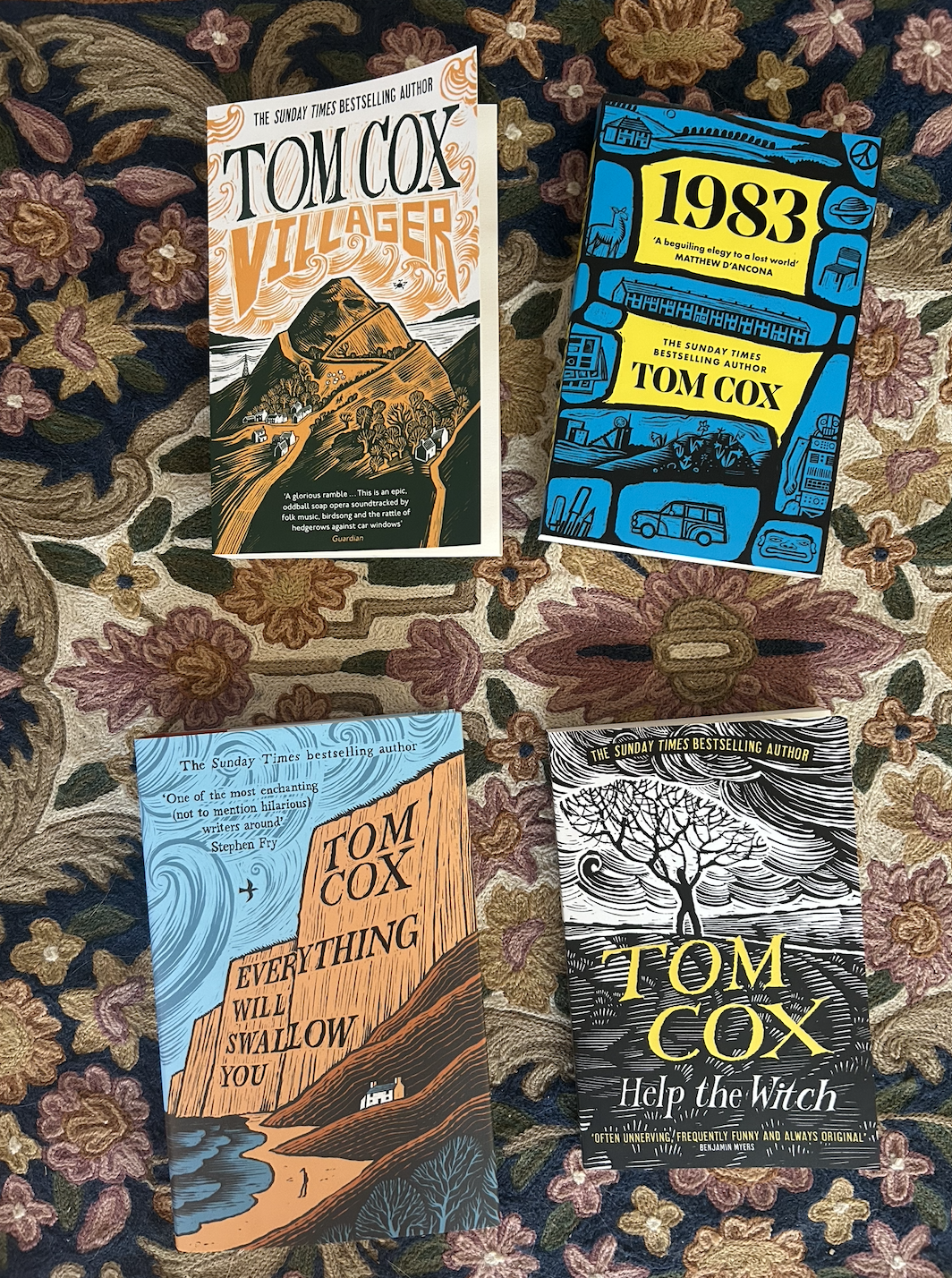
Everything Will Swallow You: published September 11th. Available from Blackwell's, signed by me, with free international shipping.
1983, published earlier this month. Available from Blackwell's, with free international shipping.
Villager, republished September 11th. Available from Blackwell's, with free international shipping.
Help The Witch, republished September 11th. Available from Blackwell's, with free international shipping.

